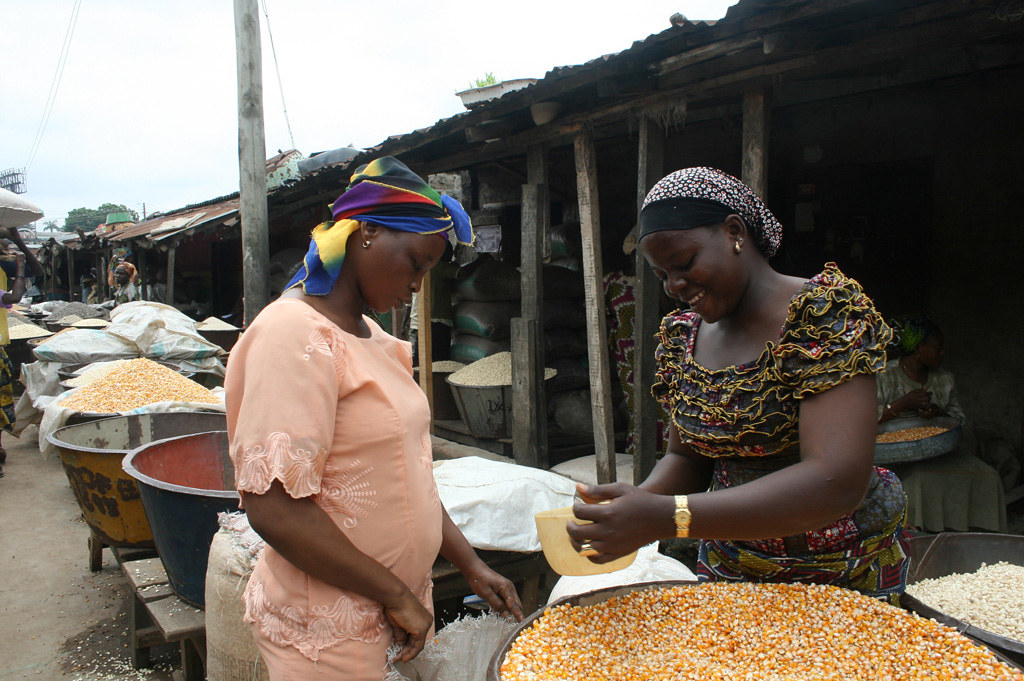
Power, agency and benefits among women and men maize farmers

This article by Emma Orchardson was originally published on the website of the International Maize and Wheat Improvement Center (CIMMYT).
For smallholder farmers in sub-Saharan Africa, new agricultural technologies such as improved maize varieties offer numerous benefits — increased incomes, lower workloads and better food security, among others. However, when new technologies are introduced, they can denaturalize and expose gender norms and power relations because their adoption inevitably requires women and men to renegotiate the rules of the game. The adoption of new varieties will often be accompanied by a number of related decisions on the allocation of farm labor, the purchase and use of inorganic fertilizers, switching crops between women- and men-managed plots, and the types of benefit household members expect to secure may change.
In a recent article published in Gender, Technology and Development, researchers from the International Maize and Wheat Improvement Center (CIMMYT) explore how women in Nigeria negotiate these new power dynamics to access and secure the benefits of improved maize varieties and, more broadly, to expand their decision-making space.
Using focus group and interview data collected as part of the GENNOVATE project, the authors draw on case studies from four villages — two in the northern states of Kaduna and Plateau; two in the southwestern state of Oyo — to develop an understanding of the relationship between gender norms, women’s ability and willingness to express their agency, and the uptake of agricultural technologies. “This is an important step toward improving the capacity of agricultural research for development to design and scale innovations,” say the authors. “Achieving this ambition is highly relevant to maize.”
Embedded gender norms – particularly those relating to mobility – infuse the wider environment and mean that women’s access to opportunities is considerably more restricted than it is for men.
The results were similar across all four sites. The authors found that women in each area were constrained by powerful gender norms which privilege male agency and largely frown upon women’s empowerment, thus limiting their ability to maximize the benefits from improved varieties or realize their agency in other domains.
All women respondents remarked that improved maize varieties were easy to adopt, have higher yields and mature quickly, which meant that income flows started earlier and helped them meet household expenditures on time. They prioritized the contribution of improved maize to securing household food security, which helped them meet their ascribed gender roles as food providers.
“At the same time though, women felt they could not maximize their benefits from improved maize varieties due to men’s dominance in decision-making,” the authors explain. “This was particularly the case for married women.”
“Men are meant to travel far – not women”
Embedded gender norms – particularly those relating to mobility – infuse the wider environment and mean that women’s access to opportunities is considerably more restricted than it is for men.
The findings demonstrate that both women and men farmers secure benefits from improved maize varieties. However, men accrue more benefits and benefit directly, as they have unfettered mobility and opportunity. They can access markets that are further away, and the maize they sell is unprocessed and requires no transformation. Additionally, men do not question their right to devote profits from maize primarily to their own concerns, nor their right to secure a high level of control over the money women make.
On the other hand, women respondents — regardless of age and income cohort — repeatedly stated that while it is hard to earn significant money from local sales of the processed maize products they make, it is also very difficult for them to enter large markets selling unprocessed, improved maize.
The difficulties women face in trying to grow maize businesses may be partly related to a lack of business acumen and experience, but a primary reason is limited personal mobility in all four communities. For example, in Sabon Birni village, Kaduna, women lamented that though the local market is not large enough to accommodate their maize processing and other agri-business ventures, they are not permitted travel to markets further afield where ‘there are always people ready to buy’.
“Women’s benefits relate to the fact that improved maize varieties increase the absolute size of the ‘maize cake’,” say the authors. “They expect to get a larger slice as a consequence. However, the absolute potential of improved varieties for boosting women’s incomes and other options of importance to women is hampered by gender norms that significantly restrict their agency.”
The implications for maize research and development are that an improved understanding of the complex relational nature of empowerment is essential when introducing new agricultural technologies.
Read the full paper:
Unequal partners: associations between power, agency and benefits among women and men maize farmers in Nigeria
